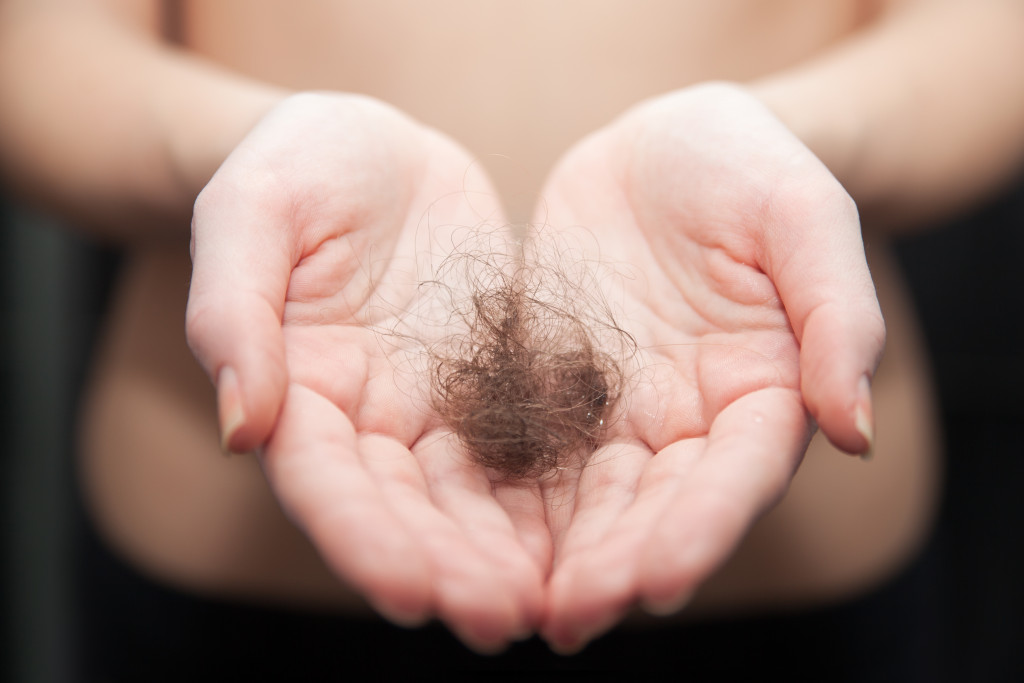The pandemic caused a lot of anxiety and stress among a lot of people across the country. Even though the situation improved since the health crisis started, the emergence of the new variants may cause anxiety to return for many people.
Aside from the mental anguish, the anxiety that people feel may cause a delayed physical response. The physical response can include skin problems and hair loss. The chemical response caused by stress on the body increases the sensitivity of the skin.
But sensitive skin is just one of the effects of the pandemic. The pandemic also caused a lot of people to experience severe hair-shedding. The stressful events caused by the pandemic caused the development of a medical condition known as telogen effluvium.
In a normal hair cycle, people lose around 100 hair strands each day. But if they suffer from telogen effluvium, they may end up losing up to 70 percent of the hair on their scalp. The condition is a common response among people who experienced extreme stress after they caught the disease. But it also affected people who experienced the stress even if they did not get infected.
Response of the Body to Stress
Hair loss and skin problems were among the issues that people experienced during the pandemic. People can also experience dandruff, acne, and eczema, especially among older people susceptible to the virus and fear losing their money during the pandemic.
When dandruff starts to form on the hair, it’s best to use natural anti-dandruff shampoo to avoid damaging the scalp while dealing with the issue. These types of shampoo reduce flakes and deal with scalp irritation. The shampoo also regulates the production of sebum or excess skin oil that contributes to dandruff.
For other hair loss issues, they should consult a professional since it can be a sign of more serious issues, such as anemia or a thyroid problem. The doctor can run tests to rule out any serious health issues. If the hair loss results from stress, taking hair loss supplements can help deal with the problem. They can also work on the stress and anxiety they feel due to the situation.
Eczema or atopic dermatitis is a skin issue where the skin becomes itchy and red. To deal with eczema, people can take a 10-minute lukewarm shower using ordinary fragrance-free soap. They can use the soap in areas affected by the condition. Dry skin can readily shed off its natural oils even if a person uses gentle soap. They should also do away with the washcloth since it can also remove the natural oils from the skin.
Pat drying the skin after a shower is ideal. They should also moisturize the skin using an ointment while it’s still damp. Additionally, they should see a doctor who may prescribe a corticosteroid cream for them to use. The doctor may even prescribe an antibiotic cream if the skin has any bacterial infection.
Dealing with Dry Skin

To reduce the risk of spreading the virus, people practiced good hand hygiene. They ended up washing their hands with soap and water more often compared to the time before the pandemic started. But this frequent handwashing also resulted in pathophysiologic changes due to prolonged exposure to water and soap or hand washing liquid. These changes include impairment of keratinocytes, delayed-type hypersensitivity reactions, and epidermal barrier disruption.
Additionally, it resulted in excessive dryness of the skin. Some experienced contact dermatitis. But these skin conditions were manageable, and they can prevent eczema from developing by applying moisturizer on the skin right after washing them. Similarly, they should also use moisturizer after using hand sanitizer on the hands.
Despite the skin issues that come with frequent hand washing, people should not stop keeping themselves clean since it helps protect them from the virus. Additionally, people can protect their skin by using moisturizers. When people experience severely dry skin, they can use Vaseline on their hands at night. And when they prepare for sleep, they can cover their hands with cotton gloves before going to bed.
Advice for Cosmetic Procedures
Even as cosmetic procedures have increased a year after the pandemic started. But the current situation where a surge in the number of cases was noted, doctors may advise delaying these procedures later. These procedures still require personal protective equipment, which has a limited supply for the moment. At this point, they can be put to better use in taking care of patients who have the virus. So, it’s ideal to wait for the surge to go down before people go through a cosmetic procedure.
Skin and hair issues are among the other problems people had to deal with when the pandemic started last year.

